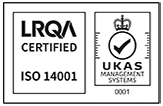When it comes to skip permits and licences every local council has its own specific regulations, which can make the process somewhat confusing. But whether you’re renovating your home, clearing out clutter or managing a construction site, understanding when you need a permit and the application process is essential and can save you both time and money. This guide will help you decipher the ins and outs of skip permits, ensuring that you stay compliant with the law and avoid unnecessary fines. From the different types of permits to the application process in Sussex, you’ll find everything you need to know here.
What is a skip permit?
A skip permit, also known as a skip licence, is a legal requirement in the UK when placing a skip on public land, like roads, pavements or verges. Issued by the local council, a permit is required to ensure the skip doesn’t obstruct traffic or create safety hazards. It outlines how long the skip can remain in place and any safety measures required, such as using reflective markings or traffic cones.
Do I need a permit to hire a skip?
Whether you need a permit to hire a skip depends on where you plan to place it. If the skip will be on public land, it is a must. However, if you place the skip on private property, like your driveway or garden, no permit is required. It’s essential to check with your skip hire company and local council to confirm the specific requirements for your area.
General rules
What are the different types of skip hire permits?
- A Highway Skip Permit is necessary when placing a skip on roads, pavements or verges.
- A Parking Bay Suspension Permit is needed if the skip is to be placed in a controlled parking zone or where it occupies a designated parking bay, such as residential or commercial parking bays. It specifically suspends parking restrictions, allowing the skip to be placed without penalties. It is the home or land owner’s responsibility to obtain such a permit and a Highway Skip Permit is also required.
How much do skip permits cost?
A Highway Skip Permit typically ranges from £30 to £150, depending on the local council and the specific conditions of the permit.
Here’s a breakdown of the costs:
- Smaller councils often charge lower fees, around £30 to £60, owing to lower administrative fees and less demand in more rural areas.
- Larger urban councils charge between £100 and £150 or more, especially in high-demand areas like city centres.
- Other costs may also be incurred for additional requirements, such as traffic management plans.
Similar to Highway Skip Permits, the cost of a Parking Bay Suspension Permit can vary significantly based on the size of the local council and specific circumstances. Generally, fees for these permits range from £20 to £200 per day or more.
It’s worth noting that councils may impose higher fees for suspending public parking spaces, particularly if the suspension affects multiple parking bays or is in a prime location.
How long do skip permits last?
Skip permits typically last between one and four weeks, but the exact duration can vary based on the local council and specific conditions outlined in the permit.
- Typical duration of permits last up to 14 calendar days – but it is worth confirming this with your local council.
- Extensions may be permitted by some councils if you need the skip for a longer period. Applications for an extension must begin before the original permit expires.
- Specific conditions might be applied by some councils regarding how long a skip can remain in a particular area, especially in busy urban settings or areas with strict parking regulations.
Applying for a skip permit in Sussex
Applying for skip permits in East and West Sussex involves understanding the specific regulations set by local councils, as requirements can vary between areas.
However, while specific procedures may vary between councils, applying for a skip permit in Sussex generally involves the following process:
Step 1. Determine your local council: Identify which local council governs the area where you plan to place the skip (e.g. for skip hire in Worthing, it’s Adur & Worthing council.)
Step 2. Check requirements: Visit your local council’s website to review the specific requirements and guidelines for skip permits. This includes information on permit duration and any documentation needed.
Step 3. Complete the application form: Fill out the skip permit application form, which is often available online. You may need to provide details such as the type and size of the skip, the duration of stay and possibly a diagram of the skip placement.
Step 4. Pay the permit fee: Many councils require an upfront payment for the permit application. Payments can often be made online through the council’s website.
Step 5. Submit the application: Most councils allow online submission, but some may also accept paper applications via mail or in person.
Step 6. Await approval: After submitting your application, you’ll need to wait for the council to process it. This typically takes about three to five working days, but it may vary depending on the council’s workload.
Step 7. Receive your permit: If your application is approved, you will receive your skip permit, detailing the duration and any specific conditions you must adhere to (e.g., safety markings or traffic cones).
Step 8. Follow the stipulated regulations: Ensure that you comply with all regulations outlined in the permit, including the placement of the skip and safety measures, to avoid fines or penalties.
| To find out more, read our blog ‘Skip hire in West Sussex, everything you need to know’ here. |
Who is responsible for applying for a skip permit?
Rabbit Skip Hire always arranges any road licences that are required for their customers. However, this may not be the case with every skip hire company. As the end customer, you need to ensure you have the correct permit, if required, so it is advisable to hire from a company that will sort this for you and will also save you the time and effort of doing it yourself.
| When you hire a Rabbit skip, we take care of the Highway Skip Permit for you and the fee is included in your skip hire cost. |
It is important to note that, when it comes to parking bay suspension permits, as the skip hire customer, you are responsible for securing this type of licence because they can’t be issued to skip hire companies. Once you have received approval from the local council, you’ll need to share the bay suspension number with your skip hire company before the skip is delivered to the bay or restricted area.
What happens if you don’t get a permit?
Failing to obtain a skip permit when required can lead to several consequences that can complicate your waste disposal efforts. First and foremost, councils often impose fines for skips placed on public land without the necessary permits. These can range from £50 to several hundred pounds depending on the local regulations. Additionally, if the skip is reported or flagged, council officials may order its immediate removal, resulting in extra costs and delays for you.
Beyond financial penalties, you risk damaging your reputation with local authorities, which can complicate future waste disposal projects. If the skip obstructs traffic or poses a safety hazard, it can also create liabilities for accidents or injuries that occur as a result. To avoid these issues, it’s essential to check local regulations and ensure that all necessary permits are obtained before placing a skip on public land. Always consult with your skip hire company for guidance.
Skip permits made easy
Understanding skip permits is crucial for effective waste management. By familiarising yourself with local regulations and the application process, you can ensure compliance and avoid potential fines. Remember to confirm permit responsibilities with your skip hire company to make the process as hassle-free as possible.
Skip Hire FAQs
How long does it take to obtain a skip permit?
Some councils will issue a permit in as little as three days, while others may take up to five days. It is always best to plan ahead and check with your local skip hire company.
How to check if a neighbour’s skip has a permit?
Look for signage on the skip itself. If you can’t find any, contact your local council or visit their website to search for permits in your area. A friendly chat with your neighbour can also help clarify things.
What happens if a skip is on the road without a permit?
If a skip is parked on the road without a permit, the person who hired the skip might face fines from the local council, which can be hefty. The council may also arrange for the skip to be removed, leading to extra costs and delays. Therefore, it’s always best to get the permit.
Do you need a permit if your skip is on your driveway?
No. If your skip is on your own driveway or any of your private property, you do not need a permit.
Rabbit Skip Hire:
Rabbit Skip Hire is an established and expert supplier of skips for commercial and domestic projects of all sizes throughout East and West Sussex.
To find out more about Rabbit Skip Hire’s reliable and expert skip hire contact our expert and friendly team on 01903 762020, email info@rabbitgroup.co.uk or fill out our online skip hire contact form.
Rabbit Skip Hire is part of Rabbit Waste Management, which includes Rabbit Demolition.





